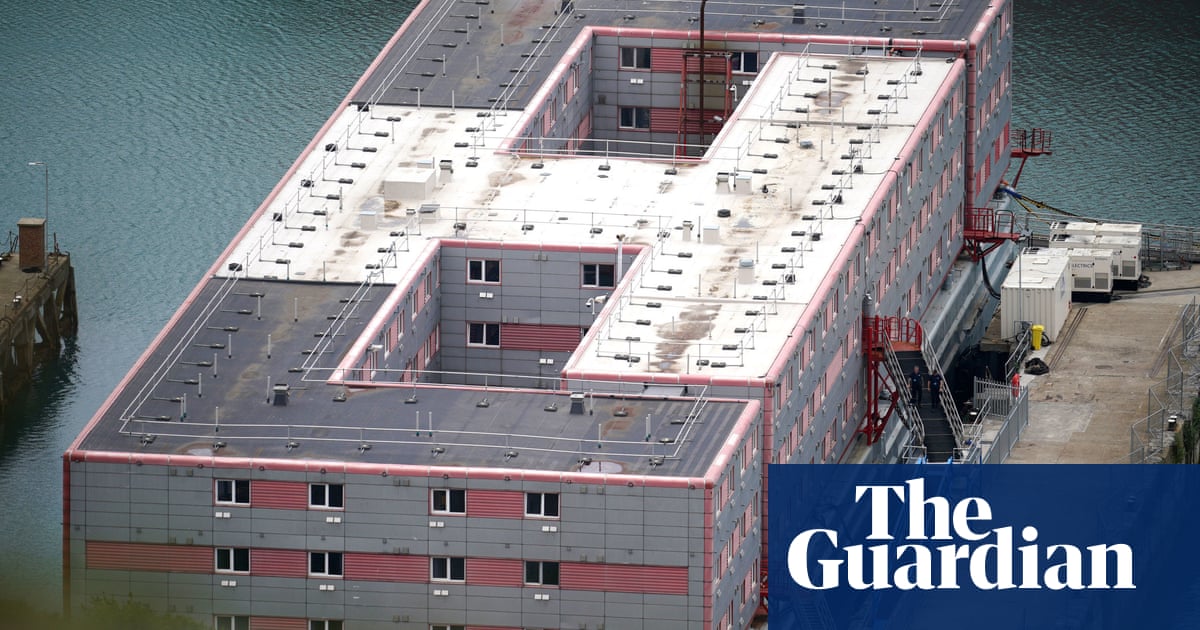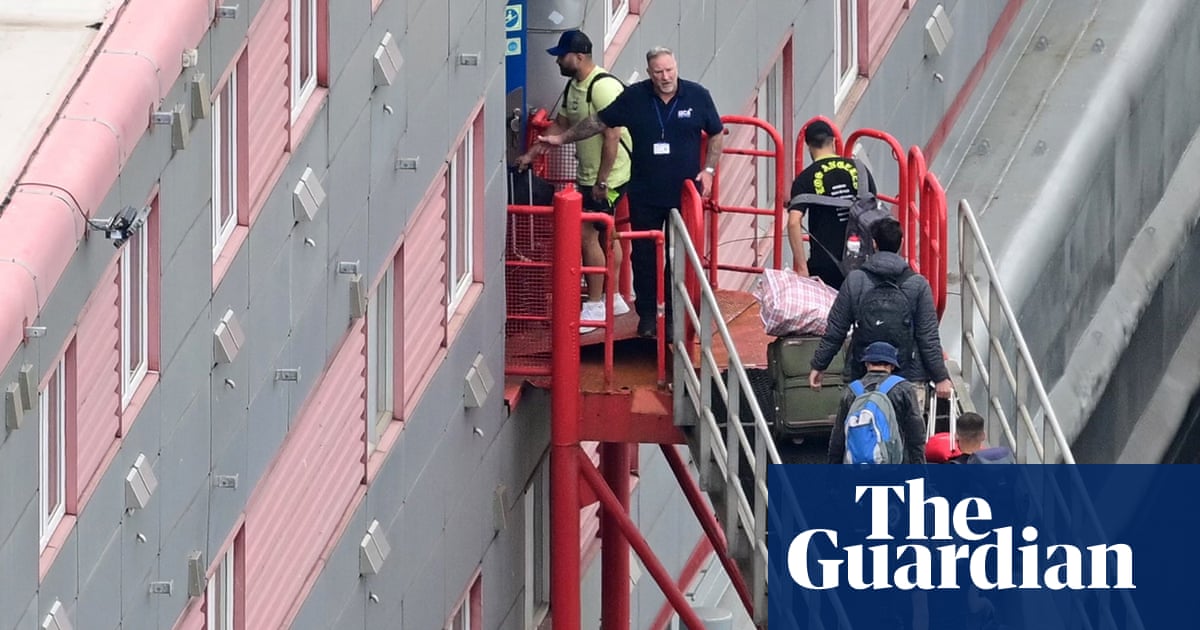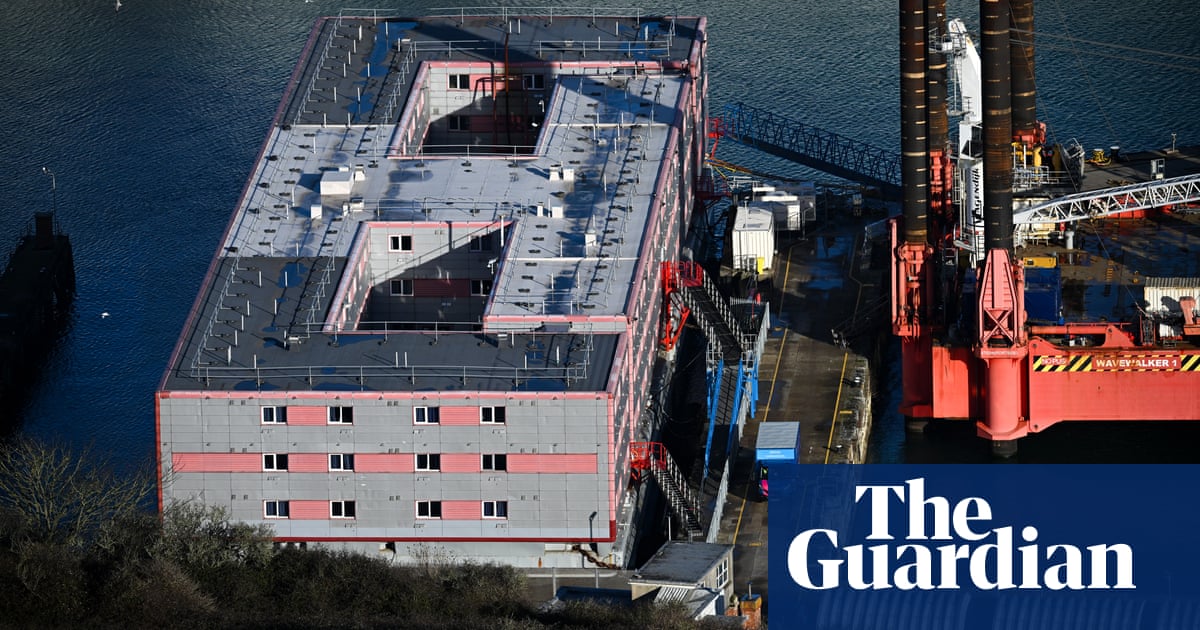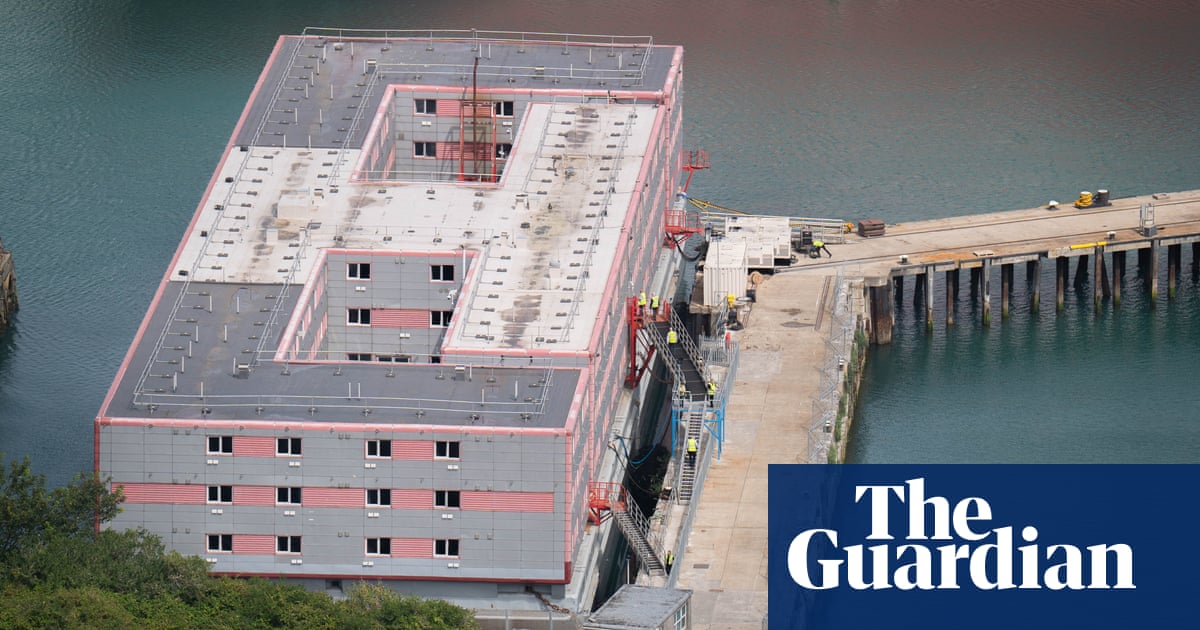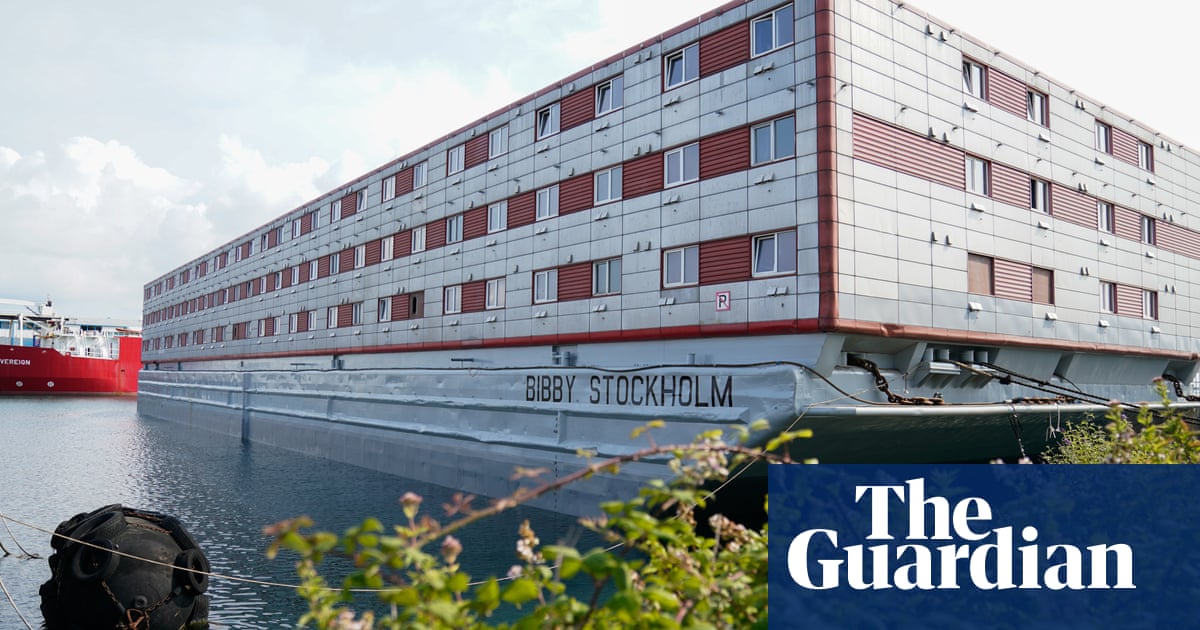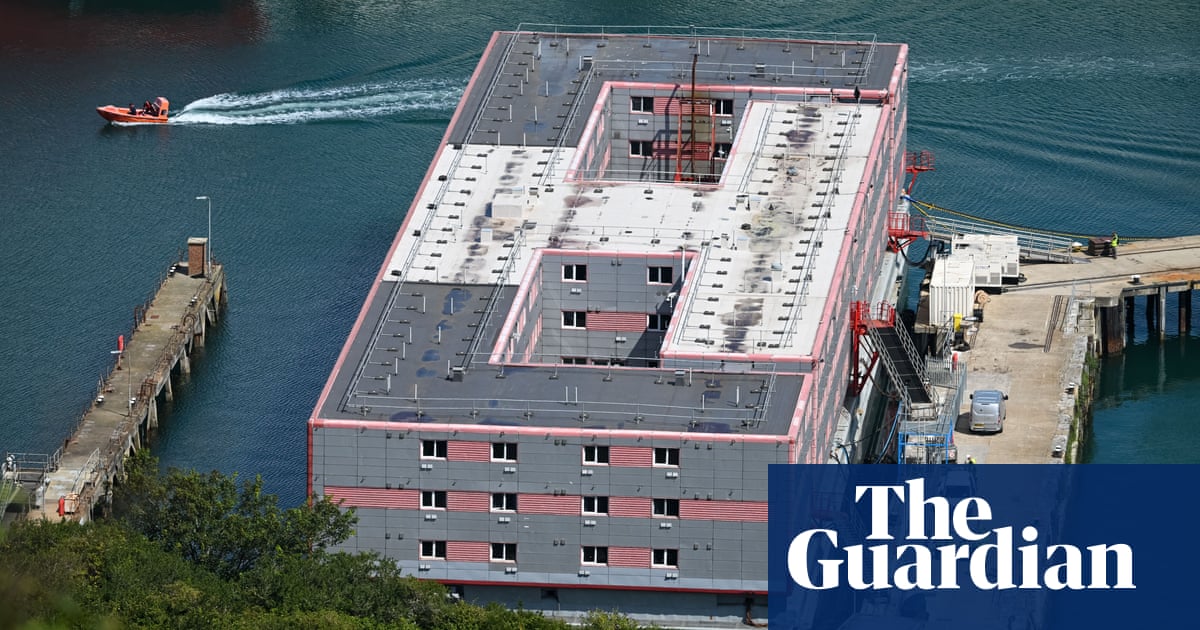
Asylum seekers on the Bibby Stockholm, the controversial barge in Dorset on which one man killed himself, are treated like “cattle” and are made to endure rancid food, bed bugs and flooding, former workers have said.
A pair of ex-employees have spoken publicly for the first time about the putrid state of the vessel, and how asylum seekers have been subjected to power cuts and poor physical conditions.
Levana Coker and Bella Basstone worked on the barge from before it opened to asylum seekers in summer 2023 until the end of the year. Coker worked as a housekeeper and Basstone worked on reception.
They said they witnessed some staff treating the asylum seekers harshly and that many complaints were ignored.
Coker said that while many of the asylum seekers onboard were heartbroken after the death of Leonard Farruku, 27, she claimed one member of the kitchen staff said to her it was “one less Muslim mouth to feed”.
Coker said: “The way the asylum seekers were treated on the barge was like cattle or animals in a zoo. This place needs to be closed down.”
Basstone said she knew Farruku and had checked him in when he arrived on the barge.
“He was smiley and funny and sweet when he arrived, but then he kept himself to himself. When we were told he had died we were told not to tell anyone,” she added.
Coker said that when one asylum seeker on the barge became ill, and could not keep food down, a doctor recommended iced drinks for him.
She said she offered to go home and get some ice lolly moulds to make frozen drinks for him but was refused permission by a staff member whom she claims told her: “That’s not your job. I don’t give a fuck if he dies.”
“There wasn’t much compassion for the asylum seekers on the barge,” she said. “The last thing they needed was for the people working on the barge to make them feel like scum. Although the asylum seekers can go out from the barge it feels like the closest thing to a prison.”
Both women said they watched the mental health of the men onboard deteriorate due to the conditions and their anxiety about the progress of their claims – especially the threat of being deported to Rwanda.
“I had to show four men to a room not much bigger than the size of a pantry,” said Basstone. “When they saw the conditions they were expected to live in they all started crying. One of them said to me: ‘This is not OK.’”
She saw another man who she said was “very smiley” when he arrived on the barge. “A week later I saw him sitting on the stairwell weeping and just staring out at the sea.
“Another man was mentally and physically strong when he arrived but he deteriorated there and managed to find alternative accommodation with a family member. ‘The barge broke me,’ he told me.”
Basstone added: “The men were scared about so many things. They kept coming up to reception and asking if they were going to be sent to Rwanda.
“Sometimes, the room flooded and many of them were scared the barge was going to sink. They could never feel safe in a place like that.”
Poor conditions included raw or mouldy food, bed bugs that left some of the men with multiple bites on their bodies, a shortage of bedding, and flimsy bunk beds so uncomfortable that some of the men slept on the floor.
Coker said that “nine times out of 10” complaints from the asylum seekers about conditions onboard were ignored.
“Whenever Home Office officials or MPs visited, there was a deep clean of the barge and nicer food than usual was served. When media visited before the barge opened only a few of the best rooms were shown to journalists.”
There was a WhatsApp group for staff and asylum seekers on the barge. Some of the messages seen by the Guardian talked about a member of staff explaining there had been a power cut, which affected the hot water supply.
One asylum seeker posted in the group: “This barge feels like a prison”, another complained that “the fish was so uncooked that it was talking to me”, while a third said he had lost some of his teeth from chewing tough meat.
One asked staff to open up the games room because “we are all in the depression room”.
The Home Office said: “We do not recognise any of these allegations. Everyone in our care is treated with dignity and respect at all times. The vessel has also been visited by several parliamentary committees, including UNHCR, who have had unfettered access to our service users.
“There are rigorous safeguarding processes in place on the barge and residents have access to health and social care services, including mental health support. If concerns are raised about any aspect of the service delivered, we work with the provider to ensure these are swiftly addressed, and Migrant Help 24/7 is also available every day of the year.”




